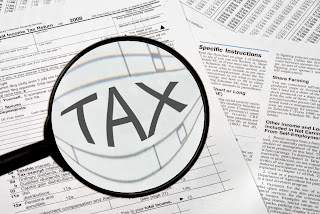Many times, a lien is confused with a levy (which is covered here). While the two are related, they're very different in their function.
First of all, here is the definition of a lien as per Internal Revenue Code (section 6321): If any person liable to pay any tax neglects or refuses to pay the same after demand, the amount (including any interest, additional amount, addition to tax, or assessable penalty, together with any costs that may accrue in addition thereto) shall be a lien in favor of the United States upon all property and rights to property, whether real or personal, belong to such person.
Basically, what this says is that if you fail to pay taxes legally due to the IRS, the IRS will make an official request (or, demand) for those taxes to be paid. If you fail to respond to the request, the IRS will impose a lien. The lien itself is simply the legal mechanism with which the IRS can use to move forward with actions to collect those taxes. This includes any interest that has accumulated, any penalties that have been imposed, and any administrative costs the IRS accrues to collect these taxes.
In addition, the Internal Revenue (section 6322) states: Unless another date is specifically fixed by law, the lien imposed by section 6321 shall arise at the time the assessment is made and shall continue until the liability for the amount so assessed (or a judgment against the taxpayer arising out of such liability) is satisfied or becomes unenforceable by reason of lapse of time.
What this means is that the lien imposed is enforceable from the moment the it was handed down and continues to be in effect until the tax burden has been paid in full or a specified amount of time has passed and it becomes unenforceable. This amount of time is either 10 years from the date of assessment (on liens assessed on or after November 6th, 1990) or 6 years from the date of assessment (on liens assessed on or before November 5th, 1990).
What if you have received a letter from the IRS saying they have imposed a lien on you?
Receiving a lien from the IRS can be an unsettling event. However, it’s not the end of the world and there are options available for those having financial difficulties when paying taxes.
The first thing you should do if you’ve receive a lien notification is to respond to the IRS. Do not ignore them! You can respond to them directly or you can have a representative such as a certified public accountant (CPA) contact them for you. The IRS will work with you to pay your delinquent taxes.
While you tax bill will continue to accumulate interest and penalties while you pay it off, working with the IRS will keep them from taking further actions against you regarding your property. Hiring a CPA can help when it comes to negotiating a repayment plan with the IRS. A CPA can even help you apply for an “offer in compromise” which can lower the amount of taxes you owe or temporarily delay collections until you are in a better financial situation to pay your tax bill.
The worst thing you can do is ignore a lien. By doing so, the IRS will begin taking action against you and your property by way of a levy. So, in short, you can think of a lien as an official “warning” that the IRS is about to begin the process of taking away your property and savings to satisfy a tax bill.
If you have any questions about what a lien is and what you can do if you’ve received a lien, call Poston, Denney, & Killpack PLLC in Idaho Falls, ID. We can answer your questions and offer guidance so that you can make the best decisions regarding your options.


No comments:
Post a Comment